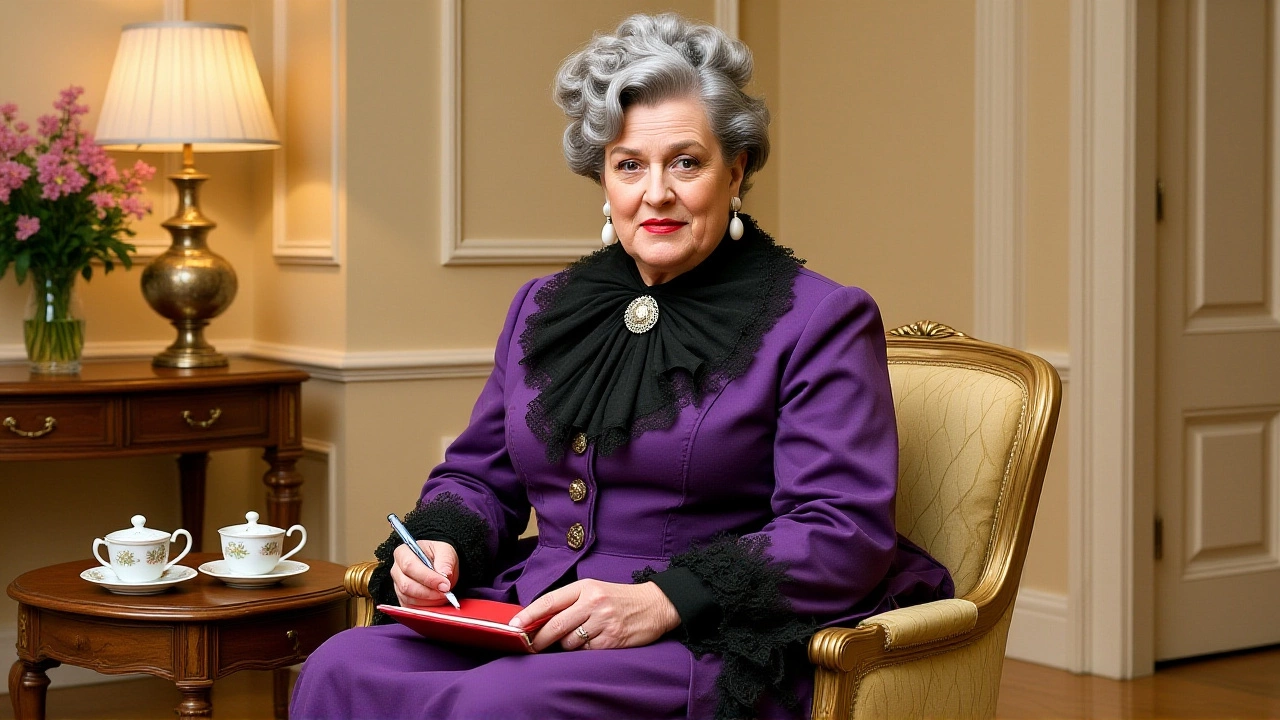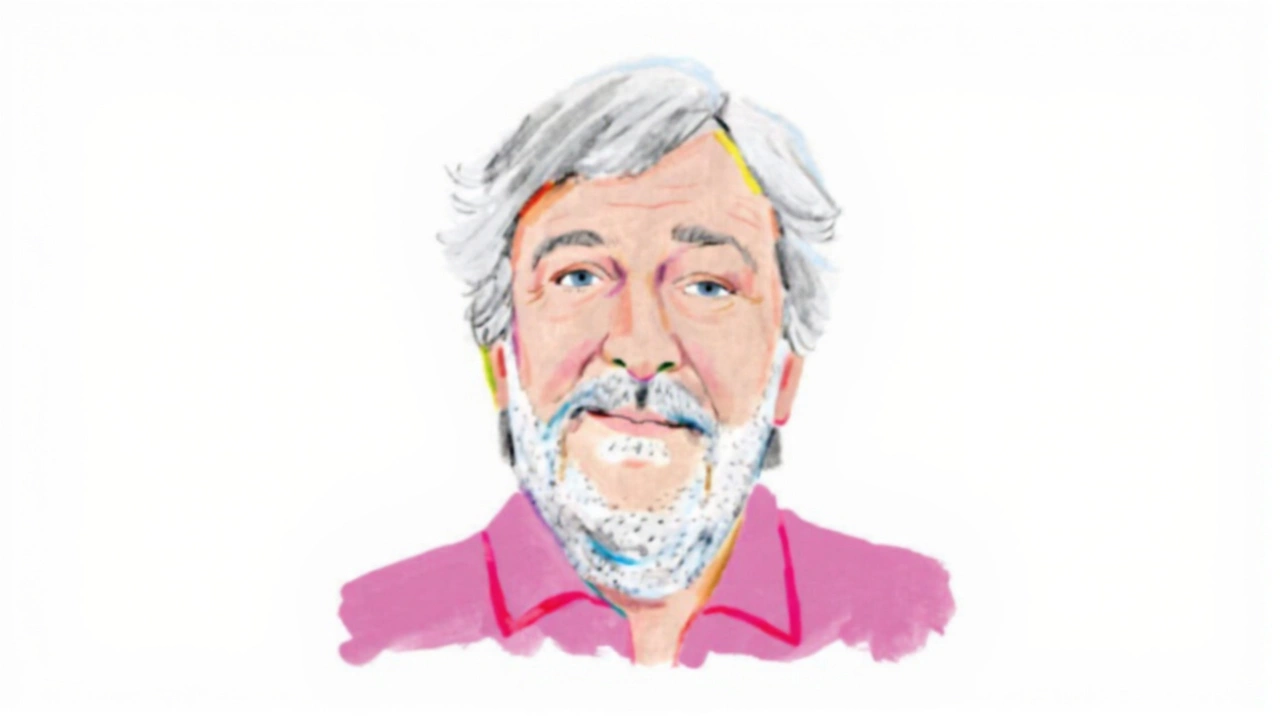When Stephen Fry, author, actor and comedian from Hampstead, London released “The Odyssey” on , the final volume in his “Great Mythology” series, readers got a fresh take on Homer’s legend. The book arrived via Penguin Random House under its Michael Joseph imprint, and the launch event in London attracted both literary fans and longtime Fry followers. Why does this matter? Because Fry’s blend of humor, footnotes, and scholarly curiosity turns an ancient epic into a conversation you can have over coffee, and it caps a four‑book journey that began with “Mythos” back in 2017.
Finishing the Mythology Quartet
The series started with Mythos, a light‑hearted retelling of the Greek creation myths, then moved to Heroes, which spotlighted demigods and mortal champions, and finally to Troy, a dramatized account of the Trojan War. The Odyssey picks up where Troy left off, following Odysseus’s ten‑year trek home after the city’s fall. Fry doesn’t just recount battles; he maps the hero’s wanderings onto modern anxieties—career burnout, marital strain, even the feeling of being stuck in a never‑ending Zoom call.
What Makes Fry’s Odyssey Different?
First, the prose is unmistakably Fry‑ish. One reviewer at Goodreads summed it up as “wit, charm, and erudition rolled into one delightfully readable package.” The humor is peppered with footnotes that feel more like tiny side‑bars than academic citations. As Emma Clarendon of Love London Love Culture noted on September 3, 2025, the footnotes are “slightly overdoing it” but they reward readers who want “more tantalising insights.”
Second, Fry mixes Greek and Roman nomenclature—a choice that sparked debate among purists. Critics argued that swapping Zeus for Jupiter mid‑sentence breaks immersion, yet many readers found the hybrid approach amusing, like a linguistic Easter egg.
Third, Fry’s narrative structure mirrors modern storytelling. He uses flashbacks and forward jumps that echo cinematic editing, a point highlighted by Bookmunch on June 27, 2025: “The Odyssey, with its subtle, ambiguous, shifting hero, feels more like a novel or a film than a strict recitation of Homer.”

Critical Reception Across the Atlantic
American and British reviewers converged on a few key themes. Publishers Weekly’s September 23, 2025 feature called the book “All Greek to Stephen Fry,” praising his decision to abandon the stage‑play concept he once entertained for “Mythos.” The piece also referenced Emily Wilson’s and Robert Fagles’s translations, noting that Fry’s footnotes sometimes echo their scholarly depth.
In the UK, The Guardian hailed the volume as “relatable and full of humour…bringing the four‑book sequence satisfyingly to a close.” Meanwhile, the Skiffy and Fanty blog pointed out a “gear shift” late in the book where Fry seems to drop his unique voice and let Homer’s original text shine through. The blog wrote, “After taking pains to make this Odyssey rather than *The* Odyssey, Fry bows to the power of Homer.”
On Goodreads the title sits at a perfect 5‑out‑of‑5 rating, with readers applauding the “masterful retelling” and “insightful commentary.” A minority complained about “black‑and‑white” character portrayals, but even those critics admitted the book made the ancient saga accessible without the heft of a university course.
Fry’s Playful Scholarly Touch
During a September 2025 interview, Fry revealed that the original plan for “Mythos” was a stage production. He later realized, “simple prose on the page, plus the opportunity to add footnotes, was more powerful than stage trickery.” The same chat featured a quirky mapping of Homeric tones onto Star Trek characters: Spock as the wise Apollo, Bones as the impulsive Dionysus, and Captain Kirk as the Goldilocks‑ish Greek hero who balances reason and passion.
Fry also confessed admiration for Christopher Nolan’s forthcoming film adaptation of “The Odyssey.” He joked that Athenians are “slightly annoyed” the director “won’t be shooting in Greece,” a comment that sparked a flurry of social‑media memes.

Looking Ahead: Film Adaptations and Legacy
While Fry’s book will likely sit on bestseller lists through the winter, the real excitement may come from the silver screen. If Nolan proceeds, we could see a visual re‑imagining that takes Fry’s footnote‑style humor into the screenplay—imagine a scene where a modern GPS voice tells Odysseus, “Recalculating route, avoid Scylla.”
Beyond cinema, the series strengthens the trend of popular authors revisiting classical myths for a mass audience. In a world where streaming services dominate, Fry’s printed work reminds us that a well‑crafted book can still spark conversation at kitchen tables.
- Publication date: June 19, 2025
- Publisher: Penguin Random House (Michael Joseph imprint)
- Series: Fourth book in “Great Mythology”
- Rating: 5/5 on Goodreads
- Key themes: Homecoming, identity, the lure of the unknown
Frequently Asked Questions
How does Fry’s retelling differ from traditional translations?
Fry injects contemporary humor, modern analogies, and extensive footnotes that act like mini‑essays. Unlike Emily Wilson’s lyrical fidelity or Robert Fagles’s poetic vigor, Fry’s version feels like a chat with a witty professor rather than a strict academic rendering.
Who is the target audience for this book?
Anyone who enjoys mythology but balks at dense scholarly tomes. The blend of jokes, pop‑culture references, and clear explanations appeals to casual readers, students, and longtime fans of Fry’s TV and radio work.
What criticisms have been leveled at the book?
Some purists lament the inconsistent use of Greek vs. Roman deity names, calling it a “mixed‑metaphor” that can confuse newcomers. A few reviewers also felt the footnotes were occasionally over‑indulgent, interrupting narrative flow.
Will Fry’s book influence future adaptations of the Odyssey?
Possibly. Fry’s approach demonstrates that ancient stories can be refreshed with humor and contemporary lenses, a template that filmmakers like Christopher Nolan might borrow when shaping visual retellings for modern audiences.
What does the book say about the timelessness of myth?
Fry argues that the longing for home, the tension between duty and desire, and the battle against unseen forces resonate just as strongly today as they did millennia ago. His commentary links Odysseus’s journey to modern themes like career displacement and digital overload.
